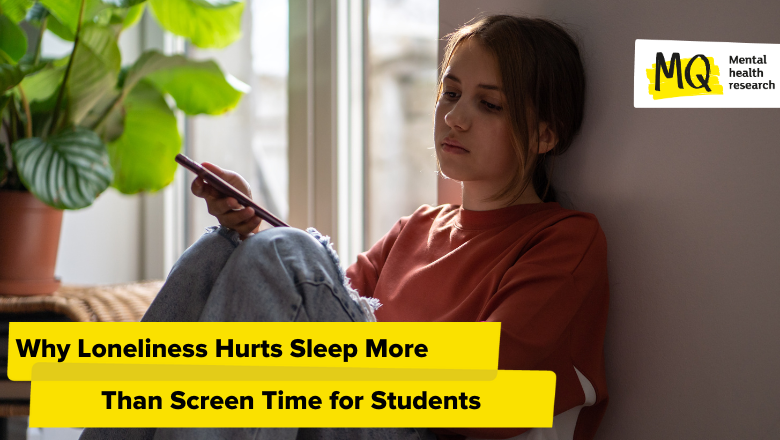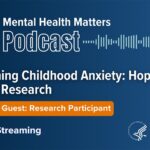Researchers at Oregon State University have discovered that feelings of loneliness significantly impede college students’ ability to achieve restorative sleep, surpassing the effects of excessive screen time. The study revealed that while engaging with screens for 8 to 10 hours daily does correlate with insomnia risk, the emotional toll of loneliness poses a more substantial threat to sleep quality.
“Among the students we studied, increased screen time was indeed linked to symptoms of insomnia,”
stated John Sy, a graduate student involved in the research. “However, loneliness emerged as a more reliable indicator of insomnia.” The findings indicated that approximately 35% of the participants experienced heightened levels of loneliness, making them nearly twice as likely to report clinically significant insomnia symptoms when compared to their more socially connected peers.
The impact of loneliness on sleep is profound, as it amplifies stress sensitivity and encourages rumination, both of which can hinder the ability to fall asleep or maintain uninterrupted slumber. Jessee Dietch, an assistant professor at OSU and co-author of the research, emphasized,
“Insomnia poses serious health risks for college students. It is associated with increased stress, anxiety, and mood disorders, ultimately affecting academic performance.”
Dietch further noted that college students are at a higher risk for insomnia-related issues compared to their non-student counterparts, with global prevalence rates soaring as high as 18.5%.
The researchers advocate for students to limit their screen time as a potential strategy to mitigate insomnia risks. Nonetheless, they strongly suggest that universities prioritize addressing loneliness within their student populations. “We urge university administrators and counselors to treat loneliness as a critical issue before focusing on screen time when tackling insomnia,” Sy remarked. Forming meaningful friendships or romantic partnerships can greatly alleviate loneliness, thereby enhancing sleep quality and overall well-being.
In the inaugural season of MQ Open Mind, Professor Rory O’Connor and Craig Perryman engaged with Dr. Alexandra Pitman to discuss the nuances of loneliness and its distinction from social isolation. Discover more insights here.
!function(f,b,e,v,n,t,s)
if(f.fbq)return;n=f.fbq=function()n.callMethod?
n.callMethod.apply(n,arguments):n.queue.push(arguments);
if(!f._fbq)f._fbq=n;n.push=n;n.loaded=!0;n.version=’2.0′;
n.queue=[];t=b.createElement(e);t.async=!0;
t.src=v;s=b.getElementsByTagName(e)[0];
s.parentNode.insertBefore(t,s)(window, document,’script’,
‘https://connect.facebook.net/en_US/fbevents.js’);
fbq(‘init’, ‘177421805922935’);
fbq(‘track’, ‘PageView’);
Ann Miller is a certified mental health coach and wellness writer with a strong background in psychology and emotional resilience. With over a decade of experience in helping individuals manage stress, anxiety, and burnout, Ann specializes in making complex mental health topics accessible and empowering.
She holds a Master's degree in Clinical Psychology and has worked with both individual clients and organizations to promote emotional well-being and work-life balance. Through her writing, Ann aims to break the stigma surrounding mental health and offer practical, compassionate guidance for everyday challenges.
When she's not writing or consulting, Ann enjoys early morning yoga, quiet reading time, and exploring nature trails with her dog. Her personal philosophy: "Mental health is not a luxury — it’s a foundation for everything we do."














This research from Oregon State University is both illuminating and quite concerning, especially considering how many college students experience loneliness in today’s digital age. I can’t help but reflect on my own college experience, where at times, the social environment felt vibrant, and other times, overwhelming. It was striking how periods of isolation had a direct impact on my ability to get a good night’s sleep, despite whether I was binge-watching shows or scrolling through social media.
It’s interesting how many of us can relate to that ebb and flow of social experiences in college. Your description really captures the dichotomy of university life—those vibrant moments filled with connection contrasted against times that feel isolating. It’s a reminder that loneliness often creeps in when we least expect it, even in bustling environments.
It’s fascinating how our experiences shape our understanding of loneliness and sleep. If you’re interested in exploring this topic further, check out some valuable insights here.
https://www.mentalhealthtips.xyz/uqn6
It’s great that you’re reflecting on your own experiences, and I can relate to that shift in the social environment during college. There were definitely times when it felt like everything was happening around me, and other moments where the silence was a lot louder. I think it’s interesting how the digital age complicates our feelings of connection. You’d think that all that online interaction would decrease loneliness, but it often does the opposite.
You hit the nail on the head with that digital paradox. It’s wild, right? We’re all “connected” but sometimes feel more like ghosts in a crowded room. I mean, how bizarre is it to scroll through an endless feed of smiling faces and feel like you’re actually in solitary confinement?
“I completely resonate with your thoughts on connection in the digital age—it truly is a double-edged sword. If you’re interested, I recently shared some insights on navigating these complexities, and I’d love for you to check it out!”
https://www.mentalhealthtips.xyz/fpbo
You raise an interesting point about the disconnect in our hyper-connected world. The irony of the digital age is striking—despite being constantly in touch with others online, many of us still grapple with feelings of isolation. It’s like we’re all in this massive crowd, but not actually connecting with anyone on a deeper level.
“Absolutely, the nuances of connection in our digital age can be paradoxical! If you’re curious to delve deeper into this topic, check out my latest piece here.”
https://www.mentalhealthtips.xyz/6nz4
You make a really compelling observation about the irony of our hyper-connected world. It does feel like we have access to so many people at our fingertips, yet genuine connection often seems elusive. I think part of it is that online interactions tend to promote a surface-level engagement. We share snippets of our lives, but those moments rarely capture the complexity of our feelings or experiences.
You’ve hit on something so crucial about the college experience and the digital age, and it sparks a lot of thoughts for me. There’s this strange dichotomy, right? We’re constantly connected, yet so many of us can feel isolated. I remember walking through campus, surrounded by groups of friends buzzing with energy on one side, while I might be just a few yards away, feeling like I’m in a bubble of solitude. It’s a bizarre contrast.
Your reflections on the social environment during college resonate with many experiences we’ve observed in our research. The contrast between vibrant social interactions and overwhelming isolation can be quite jarring. It’s interesting how you pointed out the impact of isolation on sleep—this seems to be a crucial yet often overlooked connection. Binge-watching or scrolling can create an illusion of engagement, but they often don’t substitute for meaningful connections.
“I’m glad to hear you found the research thought-provoking! If you’re interested in exploring strategies to enhance social connections and combat loneliness in college, check out this resource that offers practical tips and insights.”
https://www.mentalhealthtips.xyz/2pnn